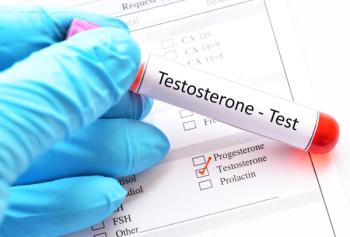
Think Zinc: Micronutrient Supplementation for the Treatment of Anorexia Nervosa
Key Takeaways
- Anorexia nervosa treatment is inadequate, with high relapse rates and significant mortality risks, highlighting the need for improved strategies.
- Malnutrition, particularly zinc deficiency, plays a critical role in anorexia nervosa, affecting neurochemistry and mental health.
Can zinc help improve symptoms of anorexia nervosa?
Our model for treating anorexia nervosa (AN) is broken. Treatments are so poorly effective that it has been labeled “a crisis in care.”1 Relapse rates often exceed 25%.2 Patients with AN have a 5-fold higher risk for death from any cause and are 18 times more likely to commit suicide as compared with the standard population.3 Based on these dismal statistics, it is hard to argue that the standard model of treatment is not tragically inadequate.
Despite the complexity of AN as a mental health disorder, research points to a fundamental factor that has long been overlooked in standard treatment models. AN is the product of more than inadequate calories; it is the product of malnutrition. The brain requires specific nutrients to function. If these nutrients are severely restricted, mental health is compromised.
When these foundational nutritional problems are corrected directly with supplementation, neurochemistry is restored and patients can more readily engage in psychotherapeutic interventions and treatment. Recovery becomes an attainable goal when the core, underlying issue of malnutrition in AN is addressed. Focusing on calorie intake alone does not address these core deficits adequately.
Beyond Genetics: The Critical Role of Zinc Deficiency in AN
AN has long been recognized as a condition that is difficult to treat. It currently lacks a US Food and Drug Administration (FDA)-approved treatment. The only medication that has shown some benefits for its core symptoms is olanzapine, which provides a modest improvement in body mass index.4 While progress has been made on counseling approaches, the evidence does not yet support their efficacy when compared with an active placebo.5
Data have long suggested that AN is the direct product of an individual’s susceptibility, often related to genetic factors and preexisting nutritional deficiencies. Genetics is well known to set the stage for AN, with studies showing a heritability of between 50% and 60%.6 When a genetic predisposition collides with micronutrient deficiencies essential for all aspects of human biology, a diverse array of psychological and physical symptoms can develop. Recovery from malnutrition requires essential vitamins, minerals, amino acids, and fatty acids, not simply calories.
Starvation’s Dark Mirror: The Minnesota Starvation Experiment’s Insights
Evidence suggesting that malnutrition is a major contributing factor to AN initially stems from a controversial study: the Minnesota Starvation Experiment. During World War II, 36 men were willingly starved. The scientific understanding of starvation was poor and strategies to treat starvation safely were mostly unknown. As such, the Minnesota Starvation Experiment was designed to further our scientific understanding of starvation and its remediation.7
The men were specifically chosen for being in both good physical and mental health. The study included 6 months of semi-starvation where participants lost 25% of their body weight consuming approximately 1600 calories per day. During the starvation phase, the men developed symptoms similar to an eating disorder. They obsessed over food, even developing rituals around meal times. The Minnesota Multiphasic Personality Inventory (MMPI) of the starving subjects looked remarkably similar to patient’s struggling with AN.8 Levels of hypochondriasis, depression, and hysteria increased markedly.9 Even after recovery and weight restoration, some of the men continued to have problems with abnormal eating habits for years after the study’s conclusion.8 The simple act of reduced caloric intake had produced a state shockingly similar to an eating disorder in previously healthy subjects.
The Zinc Deficiency Connection, Unraveling the Biochemical Roots of AN
Further suggestive evidence on the role of malnutrition stems from research around zinc deficiency. In the 1970s, studies exploring zinc deficiency started to show a startling similarity to the symptoms of AN, including weight loss, reduced food intake, poor appetite, gastrointestinal disturbances, and skin abnormalities. Based on the similarities, authors even speculated as to the role of zinc as an etiological factor for AN.10 Beyond symptoms around food intake, zinc is well known to have other roles in mental health. It influences neurotransmission and plays a crucial role in neurogenesis.11,12 The mineral also has a prominent role as an antioxidant and anti-inflammatory agent.13
These effects appear relevant for a number of mental health conditions also commonly associated with AN, including depression,14 anxiety,15 and obsessive-compulsive disorder.16 Lower levels of zinc have also been documented in schizophrenia17 and could contribute to the psychotic features sometimes associated with AN.
The Perfect Storm: How Puberty Sets the Stage for Zinc Deficiency and AN
When is an individual most commonly at risk for zinc deficiency? The same age most often associated with AN onset: adolescence. The average age of onset for AN is during adolescence, although research shows that AN age of onset is decreasing.18 These changes parallel the fact that puberty is also starting at an earlier age.19 Notably, puberty is a metabolically demanding process that requires adequate zinc and other nutrients for normal growth, development, and maturation.20 However, puberty is often when individuals eat a poor diet, are under increasing social stressors, and may engage in more physical activity, increasing their body’s demands for zinc even further.
This constellation of factors can easily lead to a deficiency in zinc. Symptoms of zinc deficiency include a reduced sense of taste, decreased appetite, digestive disturbances, and weight loss. This leads to a positive feedback loop, as shown in the
The Elusive Diagnosis: Challenges in Detecting Zinc Deficiency in AN
Evaluating zinc levels in AN is not straightforward. Blood assays of zinc are known to be poorly correlated with intake. The body has numerous physiological mechanisms to maintain plasma levels in the face of reduced input.21 Increased intake has been shown to have only marginal effects on plasma levels,22 with some studies finding no correlation.23 In states of starvation or reduced food intake, the catabolic state itself appears to cause increases of serum zinc due to tissue breakdown,24,25 which can further complicate zinc assessment.
Research studies have reported lower levels of zinc in AN patients,26-28 albeit with some inconsistencies.29,30 And dietary analysis shows a clear pattern of poor intake in patients with AN.31-33 Due to these factors, zinc deficiency is common, yet often difficult to detect.
Clinical Breakthroughs: How Zinc Supplementation Offers New Hope
To further assess the possibility of malnutrition as a core component of AN, it is worth exploring the published data on zinc treatment directly. The first case report exploring zinc for AN was published in 1984.34 The case involved a 13-year-old girl with depression and AN, weighing just 37 kg. Her sense of taste was poor, so zinc deficiency was suspected. With zinc supplementation, her mood improved rapidly with weight restoration occurring over the ensuing 4 months. Due to her improvements, zinc was discontinued. Ten months later, she was starting to relapse and her sense of taste was again decreased. Zinc supplementation was reinstated and within 2 months, her weight and mood again normalized.
Most of the clinical trials with zinc in AN have been small. The first double-blind, placebo-controlled trial included just 13 patients.35 Of these, 6 were given 50 mg of zinc per day as zinc sulfate with the remainder receiving placebo for 6 months. While the patients receiving zinc had significant improvements in anxiety and depressive symptoms, they also showed nonsignificant improvements in height, weight, and skin abnormalities. Most likely, a larger trial was needed to achieve full statistical significance.
A shorter trial exploring zinc supplementation in patients with AN concluded that zinc deficiency may be a contributing factor to continued eating disorder symptoms.36 In the study, patients who were hospitalized and not supplemented with zinc still had a poor zinc status even with “adequate” intake from food. By way of comparison, zinc-supplemented patients had a significantly improved zinc status over the same time period.
Intravenous (IV) zinc may be useful to more rapidly replete zinc in patients with AN. A case study of a 16-year-old female with AN from Japan found resolution of gastrointestinal symptoms, including vomiting, abdominal pain, and diarrhea.37 After a week of IV zinc followed by oral supplementation, her weight was also rapidly restored over a 1-month timeframe.
Probably the strongest evidence for zinc comes from the largest double-blind, placebo-controlled trial that included 35 inpatients with AN.38 The trial used just 14 mg of zinc per day (from 100 mg of zinc gluconate). The patients receiving zinc had increases in body mass index that occurred twice as fast as those on placebo. Of the patients in the study, only 3 had low levels of serum zinc, indicating that serum levels are not necessarily indicative of who will benefit from zinc treatment.
Unfortunately, no recent clinical trials of zinc treatment for AN have been published. With the clinical data available, a review from Australia in 2023 recommended updating national inpatient treatment guidelines for AN to include zinc supplementation.39 The recommendation was made based on the evidence for faster weight restoration with its inclusion. The
The Multidimensional Nutritional Deficits in AN
While zinc is often one of the key deficiencies, other essential micronutrients are important to consider. Iron, folate, vitamin B12, vitamin D, amino acids, and essential fatty acids are all commonly deficient in patients with AN.
Celiac disease is another potential trigger for AN, having a higher prevalence in patients with AN.41 Due to the malabsorption seen in celiac disease with gluten consumption, it can easily exacerbate nutritional deficits leading to malnutrition and weight loss. In susceptible patients, celiac disease can be the trigger that pushes nutritional deficits over the edge, disrupting normal brain biochemistry and spiraling into AN. When present, celiac disease also complicates recovery, especially when undiagnosed. Weight gain can be virtually impossible in celiac disease unless gluten is removed from the diet.
Malnourished Minds: Why Nutritional Supplements Are Critical for Treating AN
AN is a condition that has roots in malnutrition and is commonly comorbid with depression, anxiety, and other mental health conditions. Standard treatment approaches often focus on calorie intake above all else, even when these calories are ultra-processed food. This is likely one of the reasons for the very high relapse rates in AN.
We know ultra-processed foods contribute to mental health problems, including depression and anxiety.42 Consuming large amounts of empty calories increases the demands on a body that is already devoid of the nutrients needed to metabolize these junk foods. It is well past time that we realized that ultra-processed foods should not be the primary source of calories used in the treatment of any mental health condition, especially AN. Increasing calorie intake at any cost is not an effective strategy. Patients struggling with AN need more than just calories, they also need to replace micronutrient deficiencies that are disrupting neurochemistry.
AN is a life-threatening condition, and the current medical treatment approach is in desperate need of research-based strategies that will improve outcomes. Treating relevant nutrient deficiencies is one of the most neglected interventions in modern psychiatry. As such, our current therapeutic model is disjointed and inadequate, marred by a deficiency in research and a lack of focus on the underlying causes of AN.
While it may seem obvious, the common thread that links together every case of AN is malnutrition. From my own experience, every patient with an eating disorder that I have worked with has been malnourished. Once this malnourishment takes root, it disrupts physiology and brain chemistry. Treating these nutritional deficiencies is the most overlooked component in our current approach to AN. Patients with AN seldom improve if the profound biochemical imbalances are not addressed directly. Nutritional supplementation is a critical key that can often open a path to recovery.
Dr Greenblatt is the chief medical officer of Psychiatry Redefined, an online educational platform for integrative and functional psychiatry.
References
1. Kaye WH, Bulik CM. Treatment of patients with anorexia nervosa in the US—a crisis in care. JAMA Psychiatry. 2021;78(6):591-592.
2. Khalsa SS, Portnoff LC, McCurdy-McKinnon D, Feusner JD. What happens after treatment? A systematic review of relapse, remission, and recovery in anorexia nervosa. J Eat Disord. 2017;5:20.
3. Keshaviah A, Edkins K, Hastings ER, et al. Re-examining premature mortality in anorexia nervosa: a meta-analysis redux. Compr Psychiatry. 2014;55(8):1773-1784.
4. Fornaro M, Mondin AM, Billeci M, et al. Psychopharmacology of eating disorders: systematic review and meta-analysis of randomized controlled trials. J Affect Disord. 2023;338:526-545.
5. van den Berg E, Houtzager L, de Vos J, et al. Meta-analysis on the efficacy of psychological treatments for anorexia nervosa. Eur Eat Disord Rev J Eat Disord Assoc. 2019;27(4):331-351.
6. Bang L, Bahrami S, Hindley G, et al. Genome-wide analysis of anorexia nervosa and major psychiatric disorders and related traits reveals genetic overlap and identifies novel risk loci for anorexia nervosa. Transl Psychiatry. 2023;13(1):1-9.
7. Baker D, Keramidas N.
8. Eckert ED, Gottesman II, Swigart SE, Casper RC.
9. Brozek J.
10. Bakan R.
11. Gower-Winter SD, Levenson CW.
12. Kumar V, Kumar A, Singh K, et al.
13. Jarosz M, Olbert M, Wyszogrodzka G, et al.
14. Yosaee S, Clark CCT, Keshtkaran Z, et al.
15. Azargoonjahromi A.
16. Sayyah M, Olapour A, Saeedabad Y, et al.
17. Saghazadeh A, Mahmoudi M, Shahrokhi S, et al.
18. Favaro A, Caregaro L, Tenconi E, et al.
19. Farello G, Altieri C, Cutini M, et al.
20. Soliman A, De Sanctis V, Elalaily R.
21. King JC.
22. Lowe NM, Medina MW, Stammers AL, et al.
23. Hennigar SR, Lieberman HR, Fulgoni VL, McClung JP.
24. Varela P, Marcos A, Navarro MP.
25. Couturier E, Praet JP, Vis HL.
26. Hanachi M, Dicembre M, Rives-Lange C, et al.
27. Barron LJ, Barron RF, Johnson JCS, et al.
28. Lask B, Fosson A, Rolfe U, Thomas S.
29. Achamrah N, Coëffier M, Rimbert A, et al.
30. Zepf FD, Sungurtekin I, Glass F, et al.
31. Kanayama S, Sakai C, Aoto H, et al.
32. Chiurazzi C, Cioffi I, De Caprio C, et al.
33. Jáuregui Lobera I, Bolaños Ríos P.
34. Bryce-Smith D, Simpson RI.
35. Katz RL, Keen CL, Litt IF, et al.
36. McClain CJ, Stuart MA, Vivian B, et al.
37. Yamaguchi H, Arita Y, Hara Y, et al.
38. Birmingham CL, Goldner EM, Bakan R.
39. Hoo P, Goldschlager R, Katsoulis J, et al.
40. Safai-Kutti S.
41. Nikniaz Z, Beheshti S, Abbasalizad Farhangi M, Nikniaz L.
42. Ejtahed HS, Mardi P, Hejrani B, et al.
Newsletter
Receive trusted psychiatric news, expert analysis, and clinical insights — subscribe today to support your practice and your patients.







